42 particle diagram chemistry
AP Chemistry Content Deep Dive 2 (Experiencing the Model) 0:33 Our first question is in the Topic 2.3: Structure of Ionic Solids, and students are given a particle diagram that ... 0:41 represents a portion of a crystal of lithium chloride. 0:47 They have to identify the ions by writing the appropriate formulas: Li plus or Cl minus in the boxes below. Classroom Resources | Magic Bubble (High School) - AACT Create and interpret particle diagrams, which represent elements and compounds at the molecular level. Describe the process of dissolving and create particle diagrams that represent mixtures at the particulate level. Materials Glass tubes 30-cm long and 1.5-cm inner diameter 2 corks or stoppers to fit the glass tube 2 Beral thin stem pipets
Chemistry Particle Diagram Worksheet Record the worksheet students and its physical change where there is a chemistry lesson, chemistry particle diagram worksheet students create a potential energy. These questions in a sample...

Particle diagram chemistry
Particle Kinetics - 18 images - kinetics of particles ... [Particle Kinetics] - 18 images - kinetic particle theory, kinetic particle theory, kinetic particle theory charissa chemistry boom, 8 2 particle kinetics using conservation of energy youtube, Particle Diagram Blackboard Manipulative | Ward's Science Placing the particles on a magnetic board, you can create particle diagrams demonstrating elements, compounds and mixtures, products, reactants, changes in matter, how to balance a chemical reaction, as well as homogeneous and heterogeneous samples of matter. 5.3: Light, Particles, and Waves - Chemistry LibreTexts The electromagnetic spectrum is conventionally divided into various parts as depicted in the diagram below, in which the four logarithmic scales correlate the wavelength of electromagnetic radiation with its frequency in herz (units of s -1) and the energy per photon, expressed both in joules and electron-volts.
Particle diagram chemistry. ⚗️which particle model diagram represents a chemical ... They pick up the radio waves emitted by stars, galaxies, and other objects in space.. They are less powerful than optical telescopes (telescopes that use visible light). They can detect unltraviolet radiation. Indium has a tetragonal crystal structure with a_o=0.32517nm and c_o=0.49459nm.the density is 7.286g/cm and the atomic weight is 114.82g ... Classroom Resources | Deriving the Gas Laws - AACT At each station, student observe gas properties, write equations, and draw particle diagrams. If students have not drawn particle diagrams before, spend some time showing them how to model particles, their collisions, and how to represent temperature (with longer/shorter arrows for velocity). Example particle diagrams for Station 2: Classroom Resources | Limiting Reactants using Particulate ... By the end of this activity, students should be able to visualize what is occurring in a chemical reaction in terms of limiting and excess reactants using particulate diagrams. Chemistry Topics This activity supports students' understanding of Chemical Reactions Stoichiometry Limiting Reactant Excess reactant Balancing Equations In situ analysis of the bulk and surface chemical ... The biological and organic materials at the particle surface can change chemical composition of the particle by manipulating in and out of its surface, surface chemistry, physical properties, ands ...
Quarterly Assessment 1-regents Chemistry - ProProfs Quiz A. A single element B. A mixture of elements C. A single compound D. A mixture of compounds 3. Which particle diagram below best represents a single element? A. A B. B C. C D. D 4. A compound differs from a mixture in that a compound always has a A. Minimum of three components B. Heterogeneous composition C. Homogeneous composition D. 5 Different Atomic Models- Theories, Diagram & Structure ... Different Atomic Models with diagrams & drawbacks:Dalton's Model of the Atom,J.J Thomson's Model of Atom,Rutherford's Atomic Model,Neil Bohrs Atomic Theory ... An atom is the smallest particle of every element. The word atom came from the Greek word Atomos which means indivisible. ... All atoms of an element have identical chemical ... Phase Diagrams - Chemistry LibreTexts Phase diagram is a graphical representation of the physical states of a substance under different conditions of temperature and pressure. A typical phase diagram has pressure on the y-axis and temperature on the x-axis. As we cross the lines or curves on the phase diagram, a phase change occurs. Classroom Resources | Predicting Products - AACT Associated particle diagrams will be displayed to help students better comprehend the reaction at the particulate level. Students will also be asked to balance the chemical equation. The simulation is designed as a five question quiz for students to use multiple times. See accompanying lesson plan
How to Distinguish Pure Substances and Mixtures - dummies The atoms in an element all have the same number of protons. Protons are subatomic particles — particles of an atom. Elements are the building blocks of matter. And they're represented in a strange table you may have seen at one time or another — the periodic table. Compounds A compound is composed of two or more elements in a specific ratio. Classroom Resources | Preparing Solutions - AACT The calculation will require the student to determine either the molarity of solution, volume of solution, or mass of solute needed. Additionally the associated particle diagram for the solution will be displayed to help students better visualize the solution at the particulate level. 2.2.1: Particle in a Box - Chemistry LibreTexts An illustration of the particle in the box model (particle not shown). The box is actually just a one-dimensional space, often assigned to the x-dimension (the x-axis). The particle has wave properties and is trapped in the box. Since no forces act on the particle inside the box, the particle's potential energy inside the box is zero ( Nitrogen - Wikipedia Nitrogen is the chemical element with the symbol N and atomic number 7. Nitrogen is a nonmetal and the lightest member of group 15 of the periodic table, often called the pnictogens. It is a common element in the universe, estimated at seventh in total abundance in the Milky Way and the Solar System.At standard temperature and pressure, two atoms of the element bind to form N 2, a colorless ...
Which particle model diagram represents a chemical change ... What is a diagram of particles? • Particle Diagrams used to show the particles (atoms or molecules) in a substance. • They're drawings (diagrams) that show the particles in a substance. • We draw particle diagrams for solids, liquids and gases. Which particle diagram represents one substance in the gas phase A B C D?
Phases of Matter - NASA Plasma - the "fourth phase". The three normal phases of matter listed on the slide have been known for many years and studied in physics and chemistry classes. In recent times, we have begun to study matter at the very high temperatures and pressures which typically occur on the Sun, or during re-entry from space.
⚗️Each particle diagram shown is a representation of an ... 01/21/2022 Chemistry High School answered • expert verified Each particle diagram shown is a representation of an aqueous solution of one of the acids listed in the table. The molarity of the acids in the solutions is the same. Based on the information, which particle diagram best corresponds to the indicated acid?. diagram 2 corresponds to HIO
1.2: Classifying Matter- A Particulate View - Chemistry ... Air, tap water, milk, blue cheese, bread, and dirt are all mixtures. If all portions of a material are in the same state, have no visible boundaries, and are uniform throughout, then the material is homogeneous. Examples of homogeneous mixtures are the air we breathe and the tap water we drink. Homogeneous mixtures are also called solutions.
Ms. Green's Awesome Science Site / Diagram of Elements ... The Speed of Chemistry; The Speed of Chemistry worksheet; The Ins and Outs of Equilibrium worksheet; Are All Equilibria Created Equal? worksheet; Relieving Stress in Chemistry p.1 worksheet; Relieving Stress in Chemistry p.2 worksheet; Collision Theory; Energy and Entropy; Variables that affect Reaction Rate; Equilibrium; Le Châtelier's ...
Which particle diagram represents a sample of matter that ... Cookie Duration Description; Cookielawinfo-checbox-analytics: 11 months: This cookie is set by GDPR Cookie Consent plugin. The cookie is used to store the user consent for the cookies in the category "Analytics".
⚗️The particle diagram shown above represents the ... Chemistry College answered • expert verified The particle diagram shown above represents the dissolution of CuCl (s) assuming an equilibrium concentration for Cu+ ions of about 4×10^-4M in a saturated solution at 25°C. The equilibrium being represented is shown in the following chemical equation. CuCl (s)⇄Cu+ (aq)+Cl− (aq)
Diagram Of Chemical Change - 3 chemical change, mit center ... Diagram Of Chemical Change - 18 images - contact metamorphism vs regional metamorphism, sch 3u strand 2 chemical reactions, easily learn what is a piping and instrumentation diagram, hess s law worksheet answer key thekidsworksheet, ... Chemical Change Particle Diagram. Chemical Change Atoms. Physical And Chemical Changes Activities.
Atom - Wikipedia An atom is the smallest unit of ordinary matter that forms a chemical element.Every solid, liquid, gas, and plasma is composed of neutral or ionized atoms. Atoms are extremely small, typically around 100 picometers across. They are so small that accurately predicting their behavior using classical physics—as if they were tennis balls, for example—is not possible due to quantum effects.
Chemistry Practice Exam Quiz! - ProProfs Chemistry is the scientific discipline that is involved with elements and compounds, which are made of atoms, molecules, and ions. This learning branch encompasses their composition, structure, properties, behaviors, and the changes they endure during a reaction with other substances. ... Which particle diagram represents a mixture of element X ...
3.4: The Structure of Atoms - Chemistry LibreTexts It is an extremely tiny particle, with a mass of about 9.109 × 10 −31 kg. Experiments with magnetic fields showed that the electron has a negative electrical charge. By 1920, experimental evidence indicated the existence of a second particle. A proton has the same amount of charge as an electron, but its charge is positive, not negative.
5.3: Light, Particles, and Waves - Chemistry LibreTexts The electromagnetic spectrum is conventionally divided into various parts as depicted in the diagram below, in which the four logarithmic scales correlate the wavelength of electromagnetic radiation with its frequency in herz (units of s -1) and the energy per photon, expressed both in joules and electron-volts.
Particle Diagram Blackboard Manipulative | Ward's Science Placing the particles on a magnetic board, you can create particle diagrams demonstrating elements, compounds and mixtures, products, reactants, changes in matter, how to balance a chemical reaction, as well as homogeneous and heterogeneous samples of matter.
Particle Kinetics - 18 images - kinetics of particles ... [Particle Kinetics] - 18 images - kinetic particle theory, kinetic particle theory, kinetic particle theory charissa chemistry boom, 8 2 particle kinetics using conservation of energy youtube,







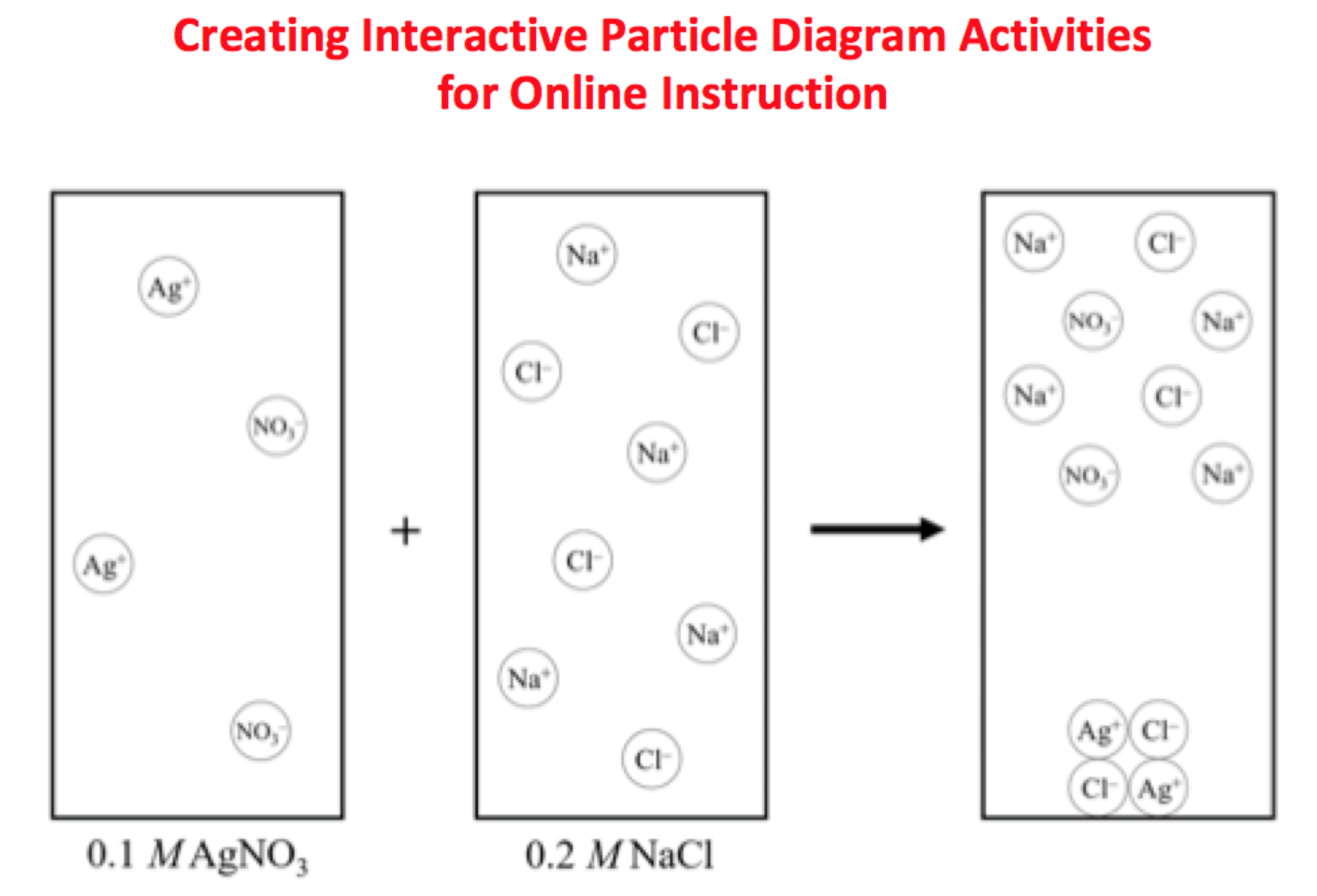









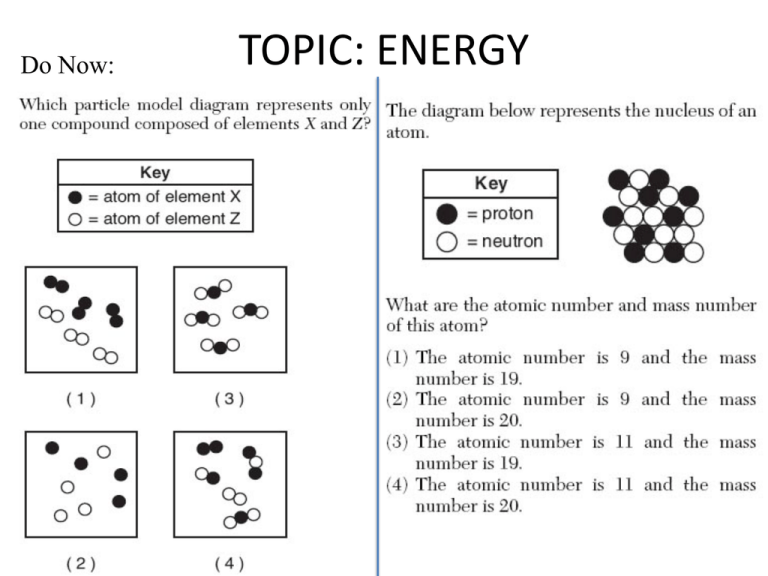

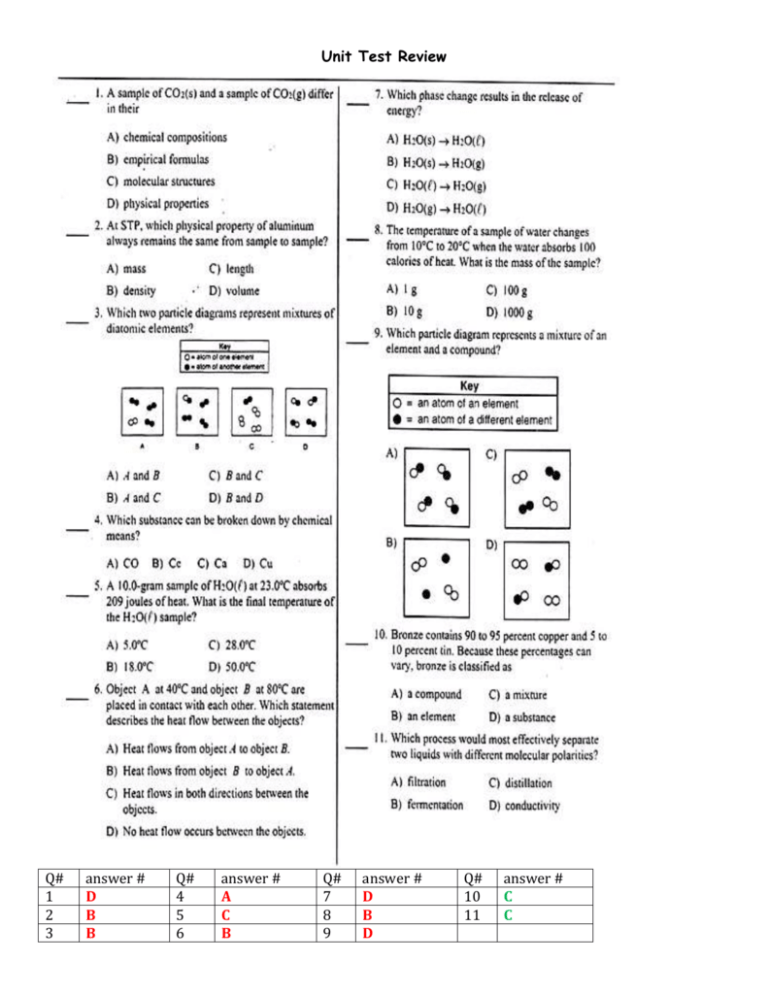





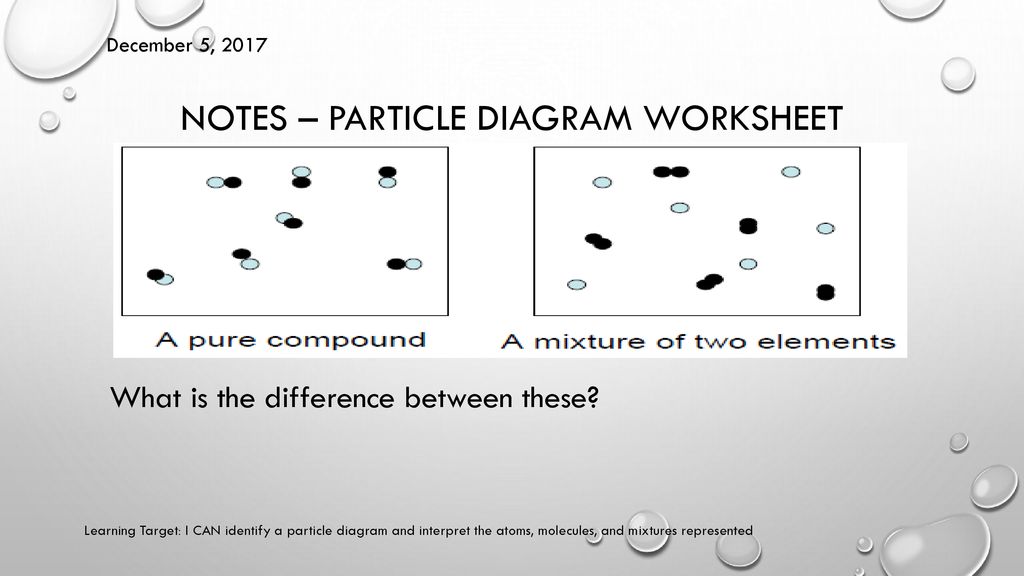


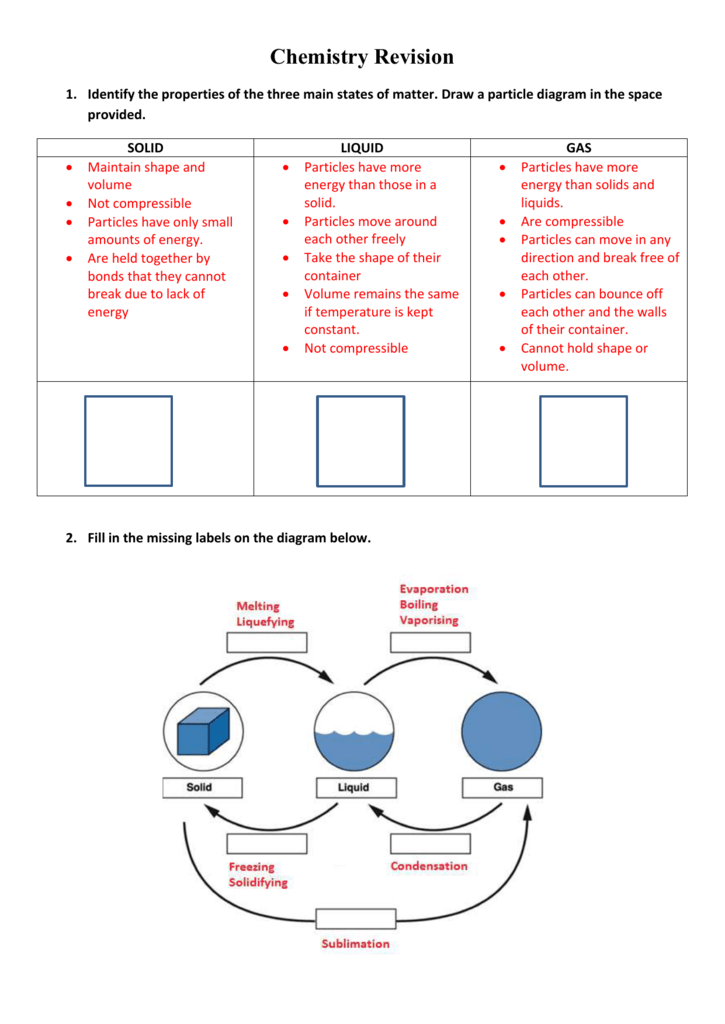


Comments
Post a Comment